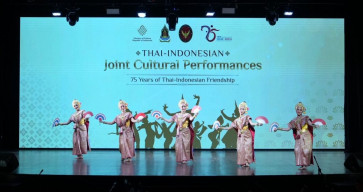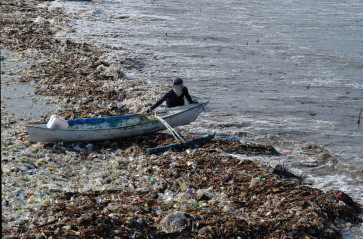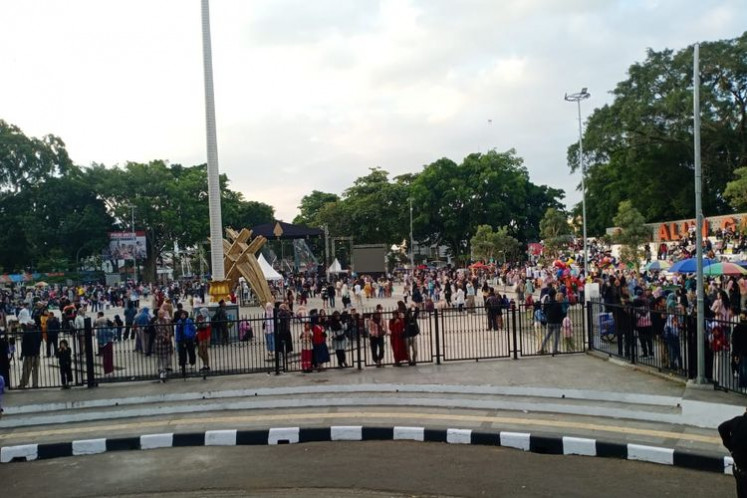Popular Reads
Top Results
Can't find what you're looking for?
View all search resultsPopular Reads
Top Results
Can't find what you're looking for?
View all search resultsIdentifying Asian values for an integrated market
There is no such thing as common Asian values, a uniform Asian paradigm or a collective Asian dynamic
Change text size
Gift Premium Articles
to Anyone
T
here is no such thing as common Asian values, a uniform Asian paradigm or a collective Asian dynamic. The space that covers Asia is far too diverse to allow for generalization.
What is true is that the last decade has seen a very intensive integration of Asian markets pretty much across the continent, from Yemen to Japan. East Asia (especially China) is the biggest consumer of West Asian oil.
Central Asian states ' Kazakhstan, Uzbekistan, Turkmenistan and Kyrgyzstan ' have loosened bonds with Russia, while strengthening them with China. This will further intensify with the development of the New Silk Road.
The creation of new institutions, notably the Asian Infrastructure Investment Bank (AIIB), will strengthen this trend. As Asian cross-border flows of goods, capital, investments, aid, technology, tourists, etc., accelerate, an increasingly integrated Asian market will be a prominent feature of the 21st century global economy.
Asian media
What does not appear to be emerging, in any profound sense, is an Asian intellectual community True, a number of Asian pundits have made it their calling to berate the 'Western media'. But there is nothing that could be called in any meaningful form the 'Asian media'.
Internationally renowned Asian thought-leaders publish op-ed pieces in the Financial Times, the Wall Street Journal, Newsweek, Time, etc., but not in Chosun Ilbo, Sankei Shimbun, Kompas or RénmÃn rìbà o (leading newspapers in South Korea, Japan, Indonesia and China).
Indeed if, say, an Indian wants to find out what is going on in Indonesia for example, the person will have to rely on Western media. (India is the world's and Asia's biggest democracy, while Indonesia is the world's third biggest democracy and Asia's second.)
There are no permanent correspondents of Indian media based in Jakarta. A comparable pattern prevails in Asia generally. Thus, Asian thought-leaders tend to be better known in the West than in Asian countries themselves, apart from their own.
A lack of leadership
To be sure, Asian leaders flock to express their views at Davos. Meanwhile, attempts to create a comparable Asian forum ' e.g., the Boao Forum ' have met with limited success at best.
Strictly speaking, there is no Asian forum for dialogue. Japan, as Asia's most advanced economy, in particular has failed to show any intellectual or policy leadership. Japanese leaders tend to be conspicuous by their absence in international forums.
Students from Asia studying abroad go overwhelmingly to Western universities. However, it is also true that Asian students of different nationalities can meet and congregate on Western campuses.
Where are the scholars?
The same applies to scholars. There are relatively few internationally or trans-Asia known experts of other Asian countries. We should all be reading Asian views on Asians, but the material is not readily available.
How many well-known Japanese or other Asian experts on China can one name? Pallavi Aiyar, the Indian journalist and writer, author of a highly internationally successful book on China, Smoke and Mirrors, is a rare case!
Another outstanding exception among Asian scholars on Asia is the Indian scholar Rana Mitter, designated as one of 'the world's 25 smartest Indians.' Where does Professor Mitter teach? Oxford. Indeed, there are far more Indian professors in the United Kingdom or United States than there are in other Asian countries. Ditto the Chinese and others.
What applies to the media, students and academia, also applies to business. There are a very small number of Western CEOs of Japanese companies, notably Carlos Ghosn, the Lebanese-Brazilian CEO of Renault and Nissan.
Yet, there are no Indian, Korean or Philippino CEOs or other top-ranking executives in charge of leading global companies headquartered in Asia. In contrast, senior Asian executives, including CEOs, are fairly numerous in both European and American enterprises.
Conclusion
As the process of the Asianization of markets can be expected to continue to deepen and expand, it becomes increasingly important for Asians to have a forum for dialogue and cross-fertilization.
Asians should decrease intellectual dependence on the West. Berating the West, as a number of Asian thought leaders are prone to do, is fine. However, it is far more important and constructive to create a vibrant trans-Asian intellectual community. (Jean-Pierre Lehmann)
_______________
The writer is Emeritus Professor of International Political Economy at IMD,










